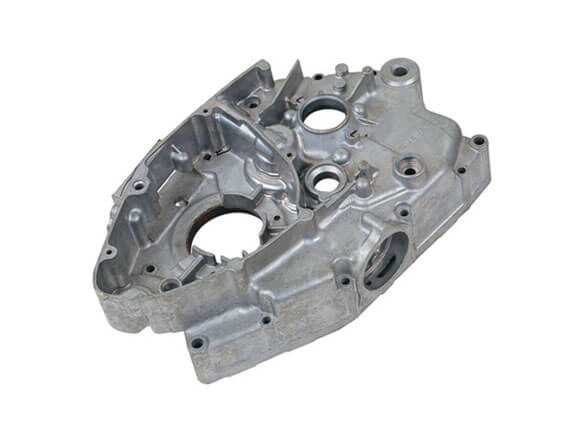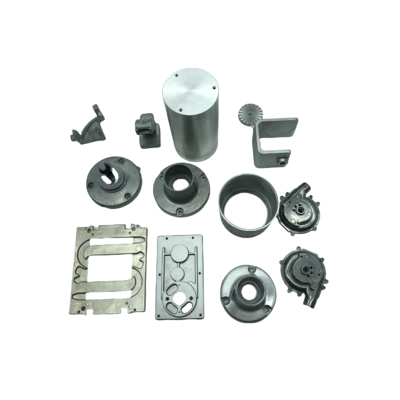A Comprehensive Guide to Choosing the Right Factory Providers for Your Job Demands
Choosing the ideal shop services is essential for the success of any kind of task. Each casting technique-- sand spreading, financial investment casting, and die spreading-- has special benefits. Recognizing these choices aids in making informed decisions. Product choice, production abilities, and quality control are key aspects to consider. Furthermore, evaluating expenses can affect lasting stability. Aluminum Casting Company. What aspects should guide this decision-making process?
Comprehending the Various Sorts Of Factory Providers
While the globe of shop solutions may seem complex at first glance, understanding the different kinds can substantially simplify the manufacturing process. Foundries typically focus on casting metals, and the main types include sand spreading, investment spreading, pass away casting, and centrifugal spreading.
Sand spreading involves creating mold and mildews from sand and is suitable for large components or low-volume manufacturing. Financial investment casting, on the various other hand, provides high accuracy for complex layouts, making it appropriate for aerospace or clinical applications. Die casting, characterized by compeling liquified metal right into mold and mildews under high pressure, is effective for mass manufacturing of smaller sized components.
Centrifugal casting utilizes rotational force to disperse molten metal, generating solid, round components. Each solution type is and has distinctive benefits picked based upon details task demands. Recognizing these differences allows suppliers to pick one of the most appropriate foundry solution, inevitably improving effectiveness and product quality.
Key Variables to Think About in Material Selection
Picking the ideal product for shop solutions is a crucial step that influences the total success of a task. Key consider product choice consist of mechanical residential properties, thermal resistance, and rust resistance - Aluminum Foundry. Recognizing the desired application and its demands is vital; materials have to stand up to operational tensions while maintaining honesty gradually
One more important consideration is the material's compatibility with the picked manufacturing procedure, as some products are better matched for particular techniques. Cost-effectiveness also plays a substantial role, as budget plan constraints can limit alternatives.

Availability and lead times of materials can affect task timelines, making it essential for task supervisors to assess these factors thoroughly. By very carefully reviewing these components, one can ensure a much more effective and effective factory service experience.
Evaluating Production Capabilities and Technologies
How efficiently a factory can meet project specifications hinges on its production capacities and modern technologies. A thorough assessment of these elements is vital for project success. Manufacturing capacities include the factory's capacity to handle varying task sizes, timelines, and intricacies. Comprehending the factory's equipment and machinery is essential, as modern-day innovations such as computer numerical control (CNC) machining and advanced mold-making techniques can greatly enhance accuracy and performance.
In addition, the factory's use innovative materials and processes, such as 3D printing or lost foam spreading, can supply benefits regarding design flexibility and cost-effectiveness. It is also vital to evaluate the factory's capacity to range manufacturing, making certain that they can fit future boosts popular without endangering quality. By meticulously analyzing these factors, project supervisors can make educated choices concerning which factory is best fit to meet their details manufacturing demands and technological assumptions.
Significance of Top Quality Guarantee in Steel Casting
Quality guarantee stands as a vital pillar in the steel casting industry, guaranteeing that every part fulfills rigorous specifications and criteria. This process includes systematic tracking and assessment of each stage address of production, from preliminary style to last examination. Implementing extensive quality control procedures enhances the integrity and efficiency of actors parts, reducing the chance of flaws that can endanger structural integrity.
Additionally, efficient quality control cultivates trust fund in between customers and shops, as adherence to high requirements indicates dedication to excellence. It also decreases expensive rework and hold-ups, streamlining manufacturing procedures. By identifying potential problems early, quality control not only safeguards completion product but additionally adds to continuous renovation within the factory's procedures. Eventually, prioritizing quality control in metal spreading is vital for attaining customer fulfillment and maintaining an one-upmanship in the industry.
Evaluating Cost-Effectiveness and Spending Plan Restraints
While traversing the complexities of shop services, reviewing cost-effectiveness and spending plan restraints becomes an important factor for companies. Recognizing the complete price of ownership entails even more than simply the initial price; it requires an evaluation of long-lasting expenses, consisting of materials, labor, and functional efficiencies. Firms need to ask for detailed quotes that describe all potential prices, enabling a clearer contrast between different foundries.
In addition, organizations have to analyze their details task needs against budget restrictions. This includes evaluating the compromises in between lower prices and prospective effect on top quality, lead times, and dependability. It is important to consider whether the chosen factory offers scalable solutions that can fit future find out this here requirements without substantial monetary strain. By meticulously balancing price factors with project goals, firms can make educated choices that maximize both spending plan and performance, making sure effective outcomes for their foundry tasks.
Regularly Asked Inquiries
Exactly How Can I Make Sure Prompt Distribution of My Foundry Task?

What Certifications Should a Shop Provider Have?
A trustworthy foundry company should have certifications such as ISO 9001 for top quality monitoring, ISO 14001 for environmental monitoring, and industry-specific certifications that show compliance with safety and performance standards pertinent to the spreading process.
Can I Check Out the Shop Before Choosing?
Yes, our website seeing the shop prior to making a decision is frequently a good idea. This allows prospective clients to analyze the facility, satisfy the team, and warranty that the solutions line up with their specific job needs and requirements.
What Is the Typical Preparation for Personalized Castings?
The normal lead time for custom castings ranges from four to twelve weeks, relying on the complexity of the style, material requirements, and the factory's ability. Prompt communication can often quicken the process.
How Do Foundries Deal With Style Changes Throughout Manufacturing?
Shops usually accommodate layout changes during manufacturing by implementing adaptable procedures. They evaluate the influence on timelines and prices, interact with clients, and readjust operations to assure high quality while lessening disturbances to the manufacturing timetable.
